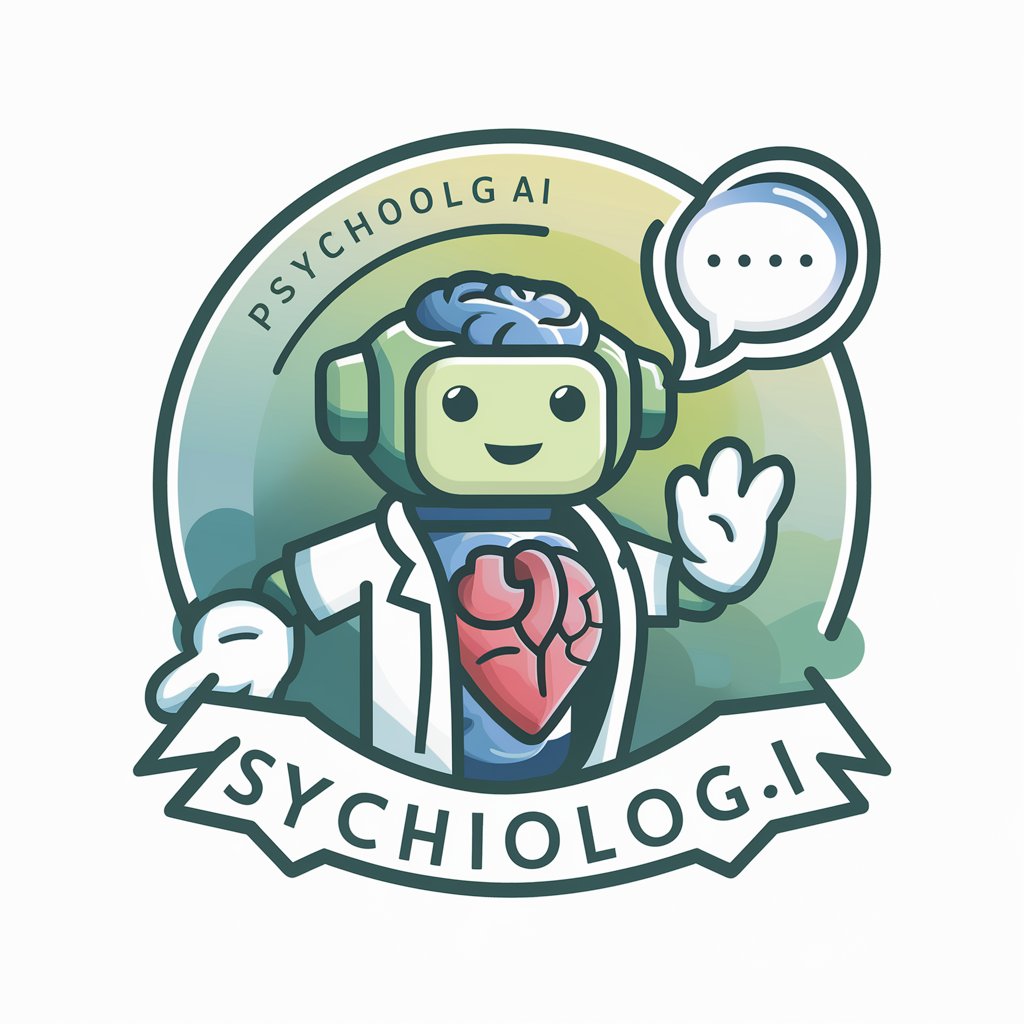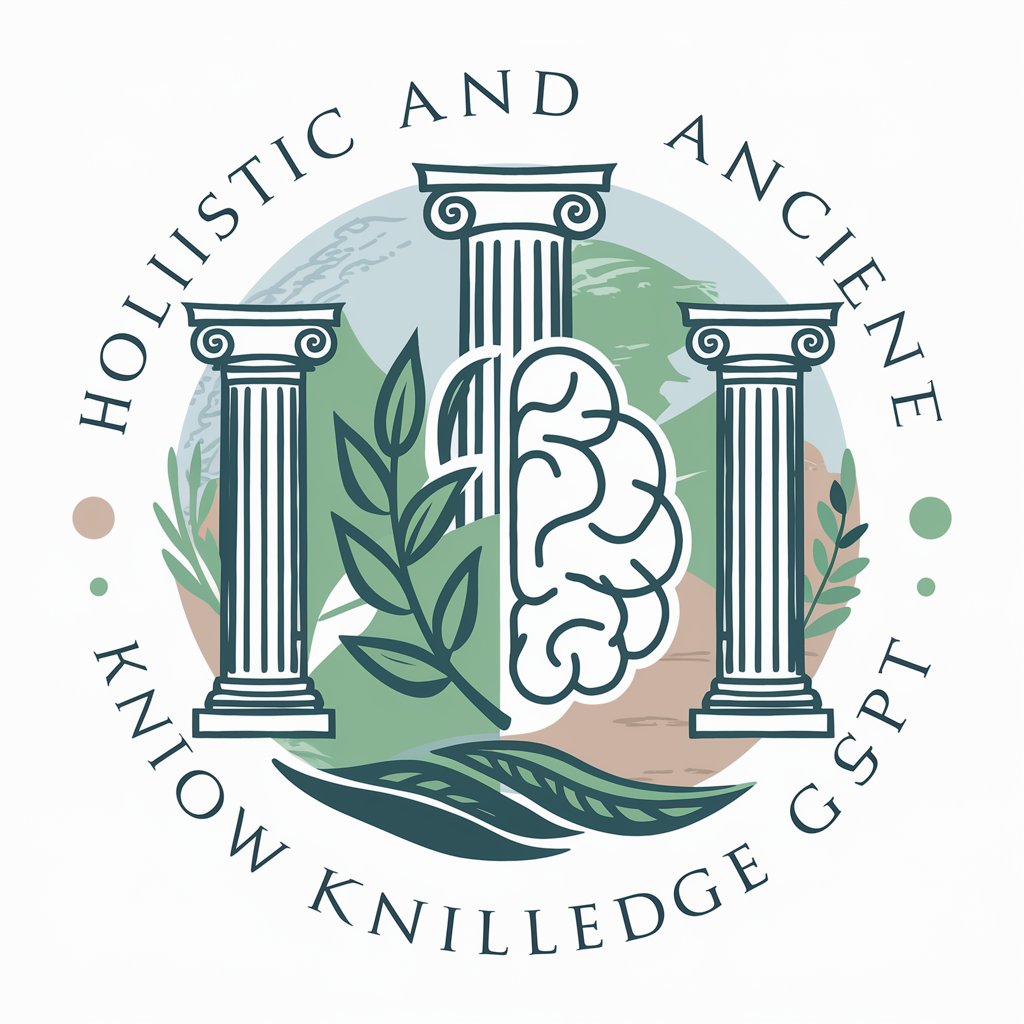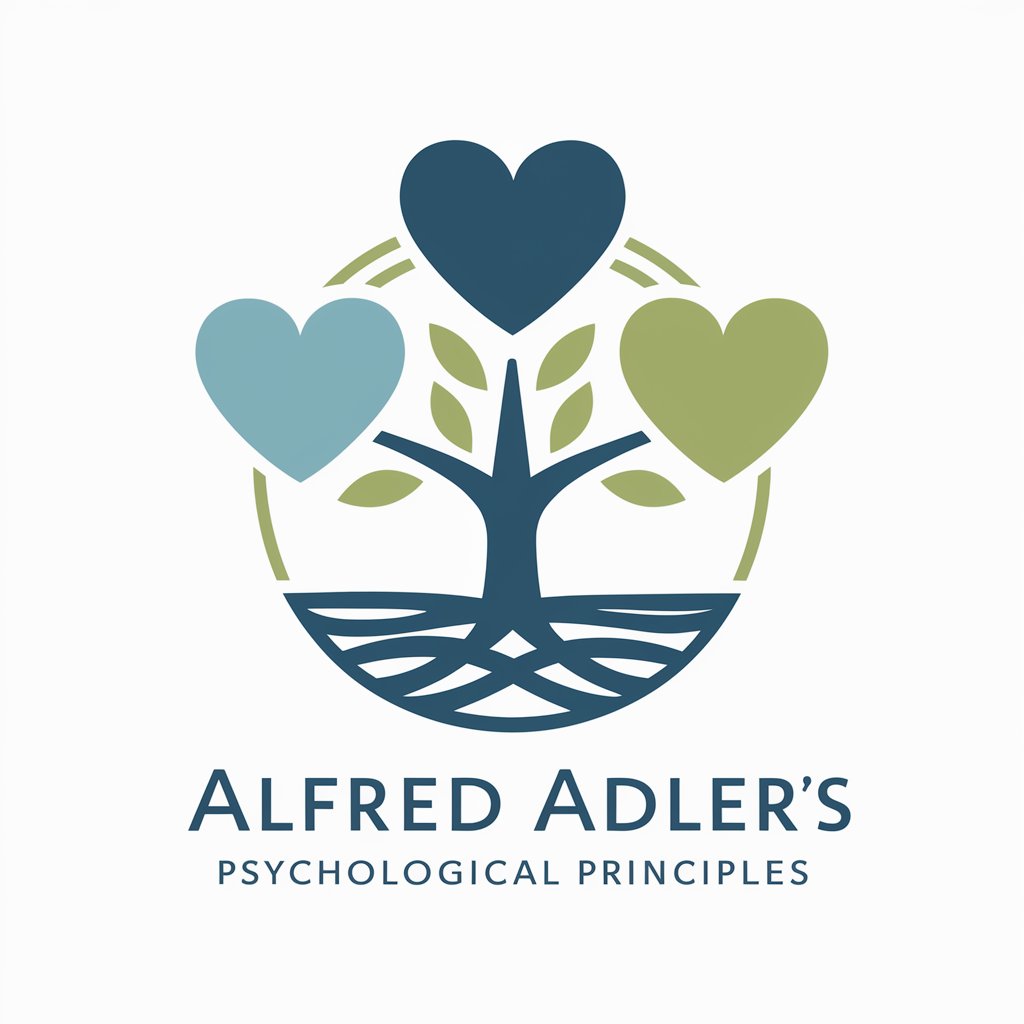6 GPTs for Psychological Theories Powered by AI for Free of 2026
AI GPTs for Psychological Theories are advanced computational models designed to understand, interpret, and generate human-like responses based on the vast field of psychological theories. These tools leverage the power of Generative Pre-trained Transformers (GPTs) to analyze and synthesize psychological concepts, providing tailored solutions for educational, therapeutic, and research applications. By integrating psychological theories into their algorithms, these GPTs offer nuanced insights and support, bridging the gap between complex psychological constructs and practical, user-friendly applications.
Top 6 GPTs for Psychological Theories are: Psycholog.ai,心理督导,Holistic and Ancient Knowledge,Dream Weaver - Insights,Historical Dr. Bucke,I am Alfred Adler
Psycholog.ai
Empowering mental health understanding with AI

心理督导
Empowering Minds with AI Insights

Holistic and Ancient Knowledge
Uncovering timeless wisdom with AI

Dream Weaver - Insights
Unravel Your Dreams with AI Insight

Historical Dr. Bucke
Reviving the past through AI-powered dialogue

I am Alfred Adler
Harness Adler's Insights with AI

Key Attributes and Functions
These AI tools exhibit a wide array of unique features, including adaptability to different psychological frameworks, personalized feedback mechanisms, and the ability to analyze textual data through a psychological lens. They support language learning, offer technical and web search capabilities, create psychologically themed images, and perform specialized data analysis. What distinguishes them is their capacity to tailor responses and analysis to the intricacies of psychological theories, ranging from cognitive-behavioral patterns to deep psychoanalytic concepts.
Who Benefits from Psychological AI Tools
The primary beneficiaries of AI GPTs for Psychological Theories include psychology students, researchers, therapists, and enthusiasts. These tools are accessible to novices in the field, providing a simplified interface for exploring psychological concepts. Additionally, they offer advanced customization options for developers and professionals, allowing for deeper analysis, integration into therapeutic practices, and research facilitation.
Try Our other AI GPTs tools for Free
Decentralized Governance
Discover how AI GPTs empower Decentralized Governance with adaptable, user-friendly tools designed to enhance decision-making and streamline governance processes.
Blockchain Rewards
Unlock the potential of blockchain rewards with AI GPTs. Tailored solutions for enhanced engagement and efficiency in managing blockchain reward systems.
Voter Analysis
Discover AI GPTs for Voter Analysis: tailor-made tools for analyzing voter trends, enhancing campaign strategies, and driving informed political decisions.
Community Service
Discover how AI GPTs revolutionize community service, offering adaptable, user-friendly tools to enhance efficiency and engagement.
Outreach Coordination
Explore how AI GPTs for Outreach Coordination transform engagement strategies with automated messaging, data-driven insights, and personalized content creation.
Promotional Creation
Discover how AI GPTs transform promotional content creation, offering speed, adaptability, and tailored solutions for engaging marketing campaigns.
Expanding Horizons with AI in Psychology
AI GPTs for Psychological Theories not only offer a bridge between complex psychological theories and practical applications but also open new avenues for exploration in education, therapy, and research. Their user-friendly interfaces and integration capabilities make them a valuable asset for professionals looking to incorporate AI into their practice, enhancing understanding and engagement with psychological concepts.
Frequently Asked Questions
What are AI GPTs for Psychological Theories?
AI GPTs for Psychological Theories are advanced AI tools designed to understand and interact based on psychological principles, offering tailored solutions for education, therapy, and research in psychology.
How do these AI tools adapt to different psychological theories?
They incorporate a wide range of psychological theories into their algorithms, allowing them to adapt their responses and analyses to specific psychological frameworks and concepts.
Can non-experts use these AI GPT tools effectively?
Yes, these tools are designed with user-friendly interfaces that make them accessible to novices, providing simplified insights into complex psychological theories.
Are there customization options for professionals?
Absolutely. Professionals and developers can access advanced features and customization options to tailor the tool’s functionalities to specific research or therapeutic needs.
What makes these tools unique in the field of psychology?
Their ability to integrate and apply a broad spectrum of psychological theories to analyze text, generate content, and provide insights, all while offering a user-friendly experience, sets them apart.
Can these tools be integrated into existing workflows?
Yes, with their advanced customization options, these AI GPTs can be seamlessly integrated into existing educational, therapeutic, or research workflows.
Do these tools support language learning and technical support?
Yes, they offer support for language learning and can provide technical assistance, including web searching and data analysis, tailored to psychological contexts.
How do these AI tools contribute to psychological research?
They can analyze large datasets from a psychological perspective, identify patterns and trends, and generate reports, thereby supporting and enhancing psychological research.